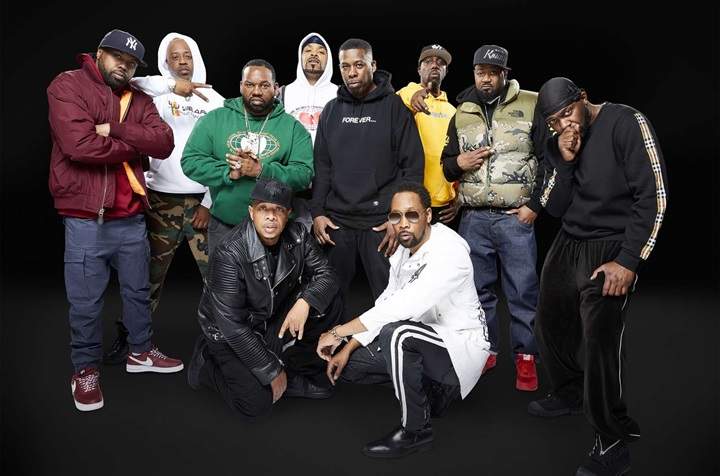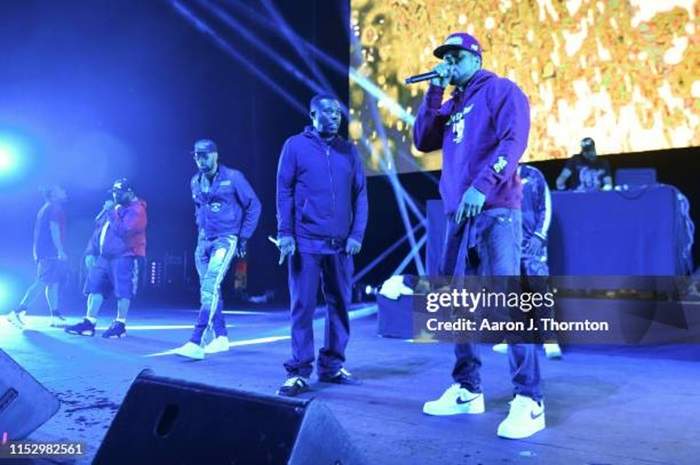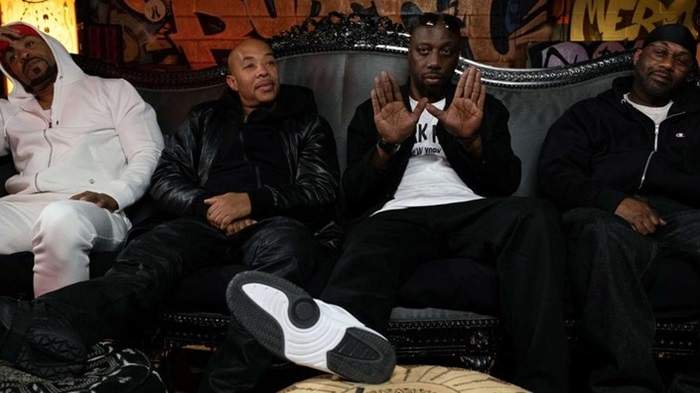Wu-Tang Clan is not only one of the most iconic groups in hip-hop history but also one of the most influential cultural movements of the 1990s. Originating from Staten Island, New York, this group blended street knowledge with kung fu movie references, a distinctive production style, and complex lyrical compositions that elevated the genre of rap to a new level. Each member brought a unique style and persona to the group, often adopting aliases that became synonymous with their music and public identity. However, behind these aliases are their real names, which are lesser known but equally important in understanding the individuals who shaped the Wu-Tang legacy.
This article dives deep into the real names of each Wu-Tang Clan member, exploring their contributions to the group, and their individual journeys both inside and outside of the Wu-Tang universe.
The Wu-Tang Clan’s Origins
Wu-Tang Clan was formed in the early 1990s, spearheaded by three primary members: GZA, Ol’ Dirty Bastard, and RZA. Their debut album, Enter the Wu-Tang (36 Chambers), released in 1993, was groundbreaking. It showcased their gritty New York sound, distinctive slang, and complex metaphors. The group’s philosophy was also built around their love of martial arts films, especially those from Hong Kong, which inspired much of their imagery and metaphors.
Before we dive into each member’s real name, let’s acknowledge that the aliases they adopted often told stories of their alter-egos and offered glimpses into their personalities. However, understanding their real names brings us closer to their backgrounds and how they were shaped into the cultural icons they became.
RZA (Robert Fitzgerald Diggs)
RZA, born Robert Fitzgerald Diggs, is the mastermind behind the Wu-Tang Clan’s production and much of its philosophical backbone. He is often referred to as the de facto leader of the group. His production style, which incorporates samples from obscure soul tracks, kung fu movie scores, and gritty drum loops, defined Wu-Tang’s unique sound. Diggs has a deeply analytical mind, and he drew from his interests in chess, martial arts, and spiritual practices to shape the group’s direction.
Besides his role in Wu-Tang, RZA has made a name for himself in the film industry as an actor, composer, and director. His real name, Robert Diggs, might not be as commonly recognized as RZA, but it’s behind some of the most important moments in hip-hop history.
GZA (Gary Earl Grice)
The group’s spiritual and intellectual guide, GZA, was born Gary Earl Grice. He’s often dubbed the “Genius” of the Clan, with a lyrical style that’s intricate, dense, and rooted in wordplay. GZA was one of the founding members of the group and, before Wu-Tang’s formation, had already embarked on a solo career.
His solo album Liquid Swords is considered one of the finest in the hip-hop genre, blending sharp storytelling with deep philosophical reflections. The name Gary Grice may sound much more subdued compared to his alias GZA, but his lyrics have always carried profound depth, making him one of the most respected lyricists in the group.
Ol’ Dirty Bastard (Russell Tyrone Jones)
Russell Tyrone Jones, better known as Ol’ Dirty Bastard (ODB), was one of the most flamboyant and unpredictable members of the Wu-Tang Clan. His style was chaotic, eccentric, and full of raw energy. He adopted the name Ol’ Dirty Bastard to signify that “there was no father to his style” — in other words, his delivery and flow were entirely original and unorthodox.
Despite his troubled personal life, including frequent run-ins with the law, ODB was a beloved figure in hip-hop. His off-the-wall personality and unmatched charisma made him a legend. Though he passed away in 2004, the legacy of Russell Jones, aka Ol’ Dirty Bastard, lives on through his music and his children, some of whom are also pursuing music careers.
Method Man (Clifford Smith)
Clifford Smith, widely known as Method Man, is perhaps the most commercially successful member of Wu-Tang Clan. His smooth delivery, deep voice, and charismatic presence have made him one of the most prominent figures in the group. Method Man’s success extends beyond the group, as he also enjoyed a fruitful solo career, with hits like “Tical” and collaborations with artists like Redman.
Outside of music, Clifford Smith has built an impressive acting career, with roles in TV shows like The Wire and Power Book II: Ghost. His transition into acting further solidified his position as one of the most versatile members of the Wu-Tang Clan.
Raekwon (Corey Woods)
Corey Woods, better known as Raekwon the Chef, is a Wu-Tang Clan member known for his vivid storytelling abilities and lyrical craftsmanship. His 1995 solo album Only Built 4 Cuban Linx is considered a mafioso rap masterpiece, blending tales of street life with crime narratives.
Raekwon’s influence on the genre, especially in terms of the “street narrative” subgenre of hip-hop, cannot be overstated. Corey Woods may not be as widely recognized as his stage name Raekwon, but his contributions to rap are iconic.
Ghostface Killah (Dennis Coles)
Born Dennis Coles, Ghostface Killah is one of Wu-Tang Clan’s most prolific members. Known for his stream-of-consciousness lyricism and highly emotional delivery, Ghostface has released numerous critically acclaimed solo albums, including Ironman, Supreme Clientele, and Fishscale.
Ghostface’s music is deeply personal, often referencing his own struggles and triumphs. His name, Dennis Coles, is lesser known, but as Ghostface Killah, his music has earned him a reputation as one of the best storytellers in hip-hop.
Inspectah Deck (Jason Richard Hunter)
Jason Richard Hunter, aka Inspectah Deck, is often viewed as the unsung hero of the Wu-Tang Clan. His verses are often complex, intellectual, and packed with wordplay. He has contributed some of the most memorable verses in Wu-Tang history, including his verse on “Triumph,” which is frequently cited as one of the greatest in hip-hop.
While Deck may not have achieved the same level of solo success as some of his Wu-Tang brothers, Jason Hunter’s contributions as Inspectah Deck have been vital to the group’s collective success.
U-God (Lamont Jody Hawkins)
Lamont Jody Hawkins, known by his stage name U-God, is one of the core members of the Wu-Tang Clan. Though often overshadowed by other members, U-God’s deep voice and gritty lyricism have been important in adding texture to the group’s sound. His 2018 memoir, Raw: My Journey Into the Wu-Tang, offers a candid insight into his life, both within and outside the Clan, making Lamont Hawkins an essential, though sometimes overlooked, member of the Wu-Tang legacy.
Masta Killa (Elgin Turner)
Elgin Turner, better known as Masta Killa, is one of the quieter members of the Wu-Tang Clan, often keeping a low profile compared to some of his flashier peers. Despite joining the group slightly later than others, he has consistently delivered thoughtful, powerful verses. Masta Killa’s understated style has contributed to the unique mix that defines Wu-Tang’s collective sound.
Cappadonna (Darryl Hill)
Though not an official member initially, Darryl Hill, known as Cappadonna, has been closely associated with the Wu-Tang Clan since their early days. His contributions to the group’s second album Wu-Tang Forever helped solidify his role in the Clan. Known for his streetwise lyrics and robust delivery, Cappadonna has been an important part of the extended Wu-Tang family. His real name, Darryl Hill, may not be widely known, but as Cappadonna, he’s left his mark on the group’s history.
The Wu-Tang Legacy
The Wu-Tang Clan is much more than a group of rappers; they are a cultural force that redefined what hip-hop could be. Behind their larger-than-life personas and aliases are men who grew up facing the challenges of the streets but rose to become icons. While their stage names will forever be associated with their contributions to music, their real names remind us of the individuals behind the mythos.
Each member of the Wu-Tang Clan brought their unique talents, perspectives, and personalities to the group, helping it achieve legendary status. Knowing their real names adds another layer to understanding the complexity and humanity of these artists, allowing us to appreciate their contributions on a deeper level.
The legacy of Robert Diggs (RZA), Gary Grice (GZA), Russell Jones (ODB), Clifford Smith (Method Man), Corey Woods (Raekwon), Dennis Coles (Ghostface Killah), Jason Hunter (Inspectah Deck), Lamont Hawkins (U-God), Elgin Turner (Masta Killa), and Darryl Hill (Cappadonna) will continue to shape hip-hop culture for generations to come.



